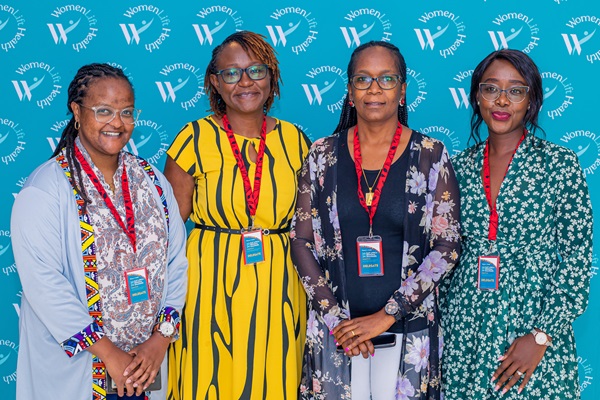
Health stakeholders in East Africa have made strong commitments today to advance gender equality in global health leadership during the inaugural WomenLift Health East Africa Regional Dialogues.
The event, held in Nairobi, Kenya, brought together 300 health professionals, policymakers, civil society leaders, academia and development partners from across the region to address barriers to women’s representation in senior leadership positions.
Under the theme “Equipped to Lead: Centering Allyship and Gender Equality to Transform Global Health Leadership,” delegates highlighted the persistent gender gap in leadership and the effects of systemic biases and harmful sociocultural norms on women’s advancement to senior roles. These factors were discussed in the context of building resilient, gender-responsive and inclusive health systems.
Deputy director-general for health in the Ministry of Health, Kenya, Dr. Zeinab Gura emphasised that achieving Universal Health Coverage (UHC) requires addressing the health needs of women and children. She noted that health systems function more effectively when women, who make up a significant portion of the health workforce, are integrated into leadership. “Women leaders bring diverse perspectives and lived experiences to the development and execution of health policies,” said Gura.
“As we advance discussions on allyship, how can we ensure that men are not only aware but true partners in supporting women in leadership? Allyship is not just about speaking; it’s about listening to women, showing up for the long term, and moving beyond short-term actions. It’s about building trust. There is no ‘us versus them.’ When women lead alongside men, the outcomes in health systems improve,” Gura added.
Globally, women make up 70 per cent of the healthcare workforce but are drastically underrepresented in leadership. Only 25 per cent of senior leadership positions in global health institutions are held by women, and of these, just 5 per cent are from low- and middle-income countries.
“Leadership matters, and gender equality in health leadership is essential to improving global health outcomes. We believe meaningful allyship can shift power dynamics and foster more inclusive leadership structures. Whether it’s male champions using their influence for good or support systems built through peer alliances, allyship is critical to creating lasting change,” said president of WomenLift Health, Amie Batson.
According to a stakeholder analysis report released by WomenLift Health earlier this year, culturally entrenched male privilege in leadership, the marginalisation of minority women, unsupportive work environments, stigmatisation of women in leadership roles, weak mentorship practices and a lack of support for women in leadership positions remain the most significant barriers to women’s leadership in East Africa.
“Health continues to be led by men but delivered by women. True progress toward gender equality and health for all, as envisioned by the Sustainable Development Goals and the African Union’s Agenda 2063, will require sustained effort and collective action,” said East Africa director of WomenLift Health, Dr. Norah Obudho. She emphasised the need for male allies to use their privilege to champion change and called for senior women to create pathways to leadership through coaching, mentoring and sponsoring younger women.
“Male allies must use their power, privilege and influence to champion change; senior women in health can create smoother pathways to leadership by mentoring and sponsoring the next generation of empowered health leaders; peer allies can foster community by creating spaces for women to collaborate and be authentic in their leadership journeys,” Obudho added.
The WomenLift Health East Africa Regional Dialogues advocate for investment in the tools needed to advance women into leadership roles. These tools include mentorship, skills training, professional networks and workplace policies that support and empower women. Such policies include equal pay, paid parental leave, flexible schedules, and access to career growth opportunities. By fostering collaboration and building networks of allies, the forum envisions a future where innovative leadership approaches address the complex challenges faced by women in health leadership and increase investment in women leadership initiatives.
Without intentional investment and action, at the current rate of progress, it will take 140 years for women to achieve equal representation in positions of power and leadership in the workplace. It could also take at least 40 years for women to reach equal representation in national parliaments.


